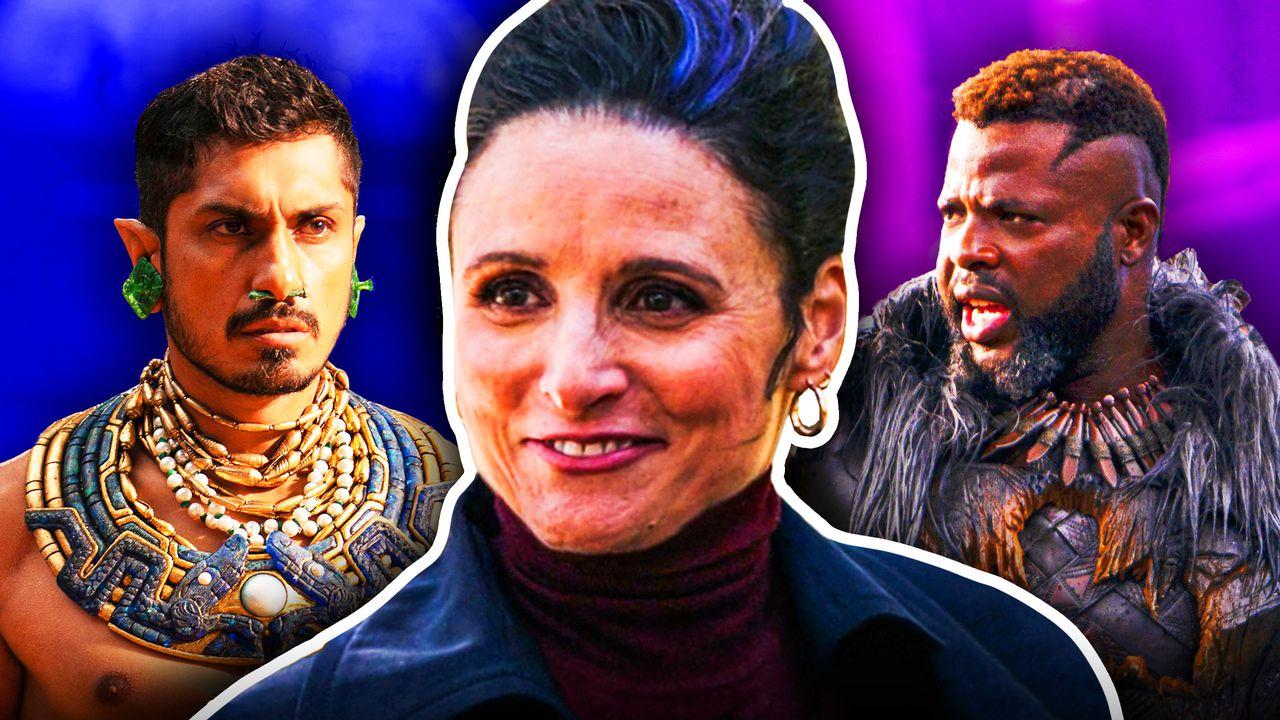
The script for Marvel's Black Panther: Wakanda Forever saw its share of changes, and a new report has revealed one specific subplot that was cut down during production.
There's no doubt the Black Panther sequel had a lot of balls to juggle. Not only did the MCU film have to deal with the loss and legacy of its main character T'Challa in the story but it also had to create an engaging narrative in the MCU world that involved introducing new characters, like Riri Williams and Namor, as well as the brand new underwater location of Talokan.
It's no surprise then that Wakanda Forever's final runtime clocked in well over 2 and a half hours.
Even with that runtime, certain elements of Black Panther: Wakanda Forever's story had to be cut in favor of others and that included a narrative involving the United States of America.
Marvel Reduced Black Panther 2 Subplot

Warning - the rest of this article contains spoilers for Black Panther: Wakanda Forever.
In an interview with Variety, the cast and creatives behind Black Panther: Wakanda Forever explained how the film's script remained a fluid document throughout the entire production process.
Star Angela Bassett told the outlet that the production process is "not etched in stone" even during filming:
“It’s a process that’s still living and breathing — it’s not etched in stone, even as we began to shoot, even on the day of shooting. You just have to go with the flow.”
The idea of a "living" script isn't unusual for a Marvel Studios film, however, this does result in certain story elements changing dramatically. Variety's article cited one specific instance of a Wakanda Forever subplot that was diminished which involved the United States playing a more prominent role in the confrontation between Wakanda and Talokan.
In the final cut of the sequel, Martin Freeman's Everett Ross and Julia Louis-Dreyfus' Val were the main characters driving this U.S. government subplot.
This was likely done in an effort to reduce the script's length which star Letitia Wright said was "about 300 pages" at one point:
"I remember just hearing through the grapevine that even though Chadwick was really unwell, he was making fun of how long it was, because the script was about 300 pages. That’s Ryan’s process; he puts everything on the page, he sends it off to Chad, and they sit and discuss.”
Some elements of Wakanda Forever's initial script did remain all the way throughout the process, in particular, Namor and his homeworld of Talokan.
Marvel Studios producer Nate Moore said it was Ryan Coogler's intention that the same "amount of effort and love" go into reimagining Talokan as a futuristic civilization as it did with Wakanda.
“Ryan wanted to put the amount of effort and love in what is now Talokan in the same way he did with Wakanda. He was looking for another culture to serve as an anchor point, and to continue the conversation thematically about colonization and what that means.”
While Namor and Talokan's involvement remained a fixture of Wakanda Forever's story, things did also have to shift to focus on Shuri's role as the heir to the throne in the wake of T'Challa's loss.
Should The U.S. Have Featured More in Wakanda Forever?
While Black Panther: Wakanda Forever certainly crams a lot into one movie, the dynamic between Wakanda and Talokan remains one of the biggest plot points.
It isn't hard to see how the United States could've had a larger part to play in this conflict. The thing that drives a wedge between the Wakandans and Talokans, to begin with, is a vibranium-detecting machine that is designed by an American scientist, Riri Williams. Therefore, three nations have always been tied up in this story.
Martin Freeman and Julia Louis-Dreyfus' characters, Everett Ross and Valentina Allegra de Fontaine, also did have prominent appearances at quite a few points throughout the film, so it's easy to see how their roles could've been expanded in earlier drafts of the script.
If the U.S. had become more involved in the war, this probably would've resulted in a very different movie. Given the dynamic that was set up between the three different nations during Wakanda Forever, it's unlikely this is the last we've seen of the conflict between them in the MCU.
Black Panther: Wakanda Forever is now playing in theaters worldwide.












